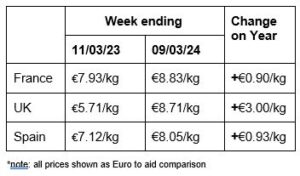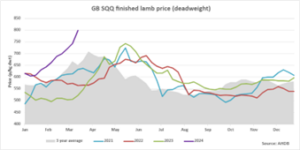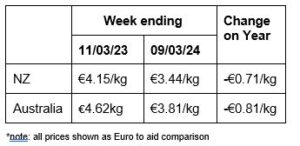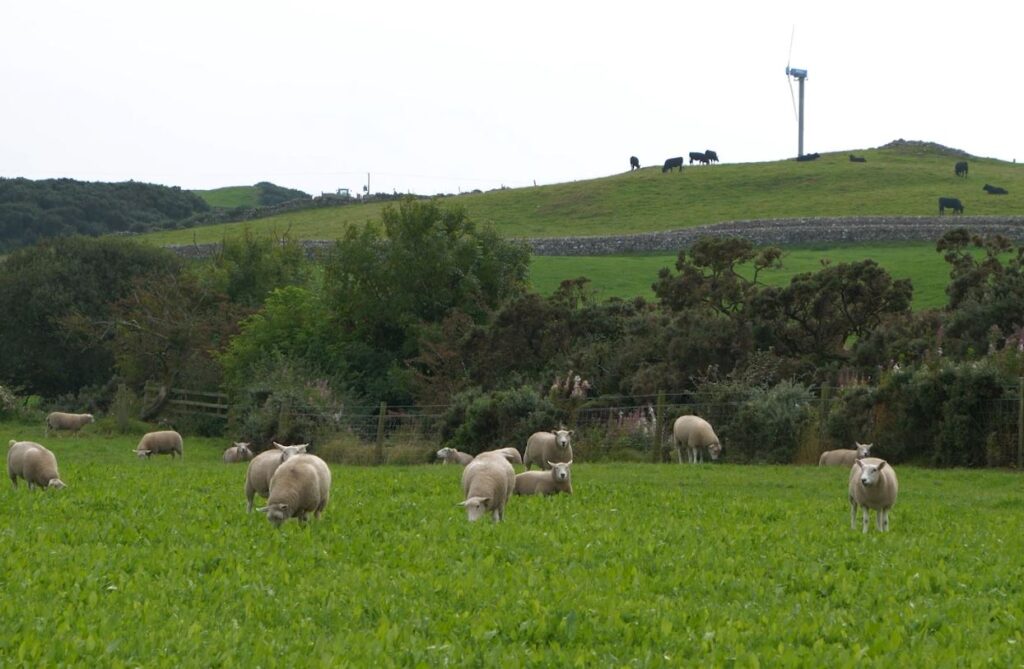Agribusiness News April 2024 – Sheep
1 April 2024Continental flock continues to decline
Drought in the Mediterranean countries, coupled with low forage availability and disease pressures from midge born viruses – Bluetongue and Schmallenburg are all attributes contributing to the decline of the European sheep flock. This fall in the flock has shown a reduction in meat production by 6% between 2022 and 2023 (26,000 tonnes less) with Spain and France showing the largest decreases at 13,000 tonnes and 6,500 tonnes, followed by Greece at 4,000 tonnes and Italy at 3,000 tonnes less sheep meat produced in 2023 compared to 2022.
It has been predicted that the European flock will fall again in 2024 by a further 1%.
While French and Spanish lamb are typically at a premium compared to the world market, the current price of UK lamb is competing hard with these superior prices, with the demand high for current religious festivals – Ramadan, Easter and Eid-al-Fitr. The week prior to Ramadan, saw the following prices,

The current UK price exceeds the highest level of price/kg for prime lamb in 2023 which was SQQ 740.80p/kg for the week ending 20th May 2023.
Latest available figures show an SQQ of 798.8p/kg for the week ending 16/03/24. This shows a rise compared to the same week last year of 276.3p/kg or ~£58 over a 21kg lamb.

Conflict and Capacity Restraints
Due to attacks on commercial shipping in the Red Sea, many shipping companies are avoiding the Suez Canal. Transport logistics are also being further complicated as an alternative route, via the Panama Canal is facing capacity constraints due to low water following summer droughts.
For New Zealand and Australian lamb to come to Europe and the UK, shipping containers now need to be rerouted via the African continent, which adds ~40% more distance, costing time and money. This is creating a great challenge to these exporting countries, who’s largest exporting time is between February – July. New Zealand also have a free trade agreement with Europe about to come in to force in mid-2024, which will leave the perishable foods in question for exporting in the current condition.
While the lamb price in these countries is currently low, due to the complexities with supply due to transport challenges, the European customer is favouring UK and Irish lamb to ensure supply through the key religious festivals.

Kirsten Williams; 07798617293

Sign up to the FAS newsletter
Receive updates on news, events and publications from Scotland’s Farm Advisory Service

